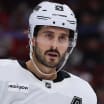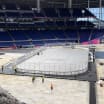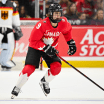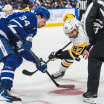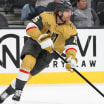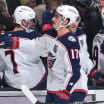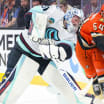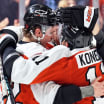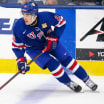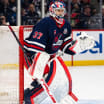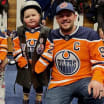When the Detroit Red Wings sold leading up to the NHL Trade Deadline on Wednesday, they paid the price for buying.
The biggest reason the Red Wings sit second to last in the Eastern Conference is that they made the Stanley Cup Playoffs the past 25 seasons. The biggest reason general manager Ken Holland traded Tomas Jurco, Steve Ott, Brendan Smith and Thomas Vanek for a second-round draft pick, three third-rounders, a sixth-rounder and minor league defenseman Dylan McIlrath is that he made the opposite type of moves for years trying to win the Stanley Cup.
Red Wings pay price for run of success
Past moves help make Detroit seller at Trade Deadline
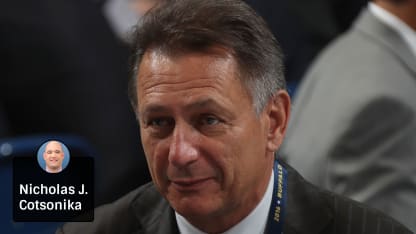
Good teams draft late; bad teams draft early. The Red Wings have been so good for so long that they haven't drafted in the top 10 since they took Martin Lapointe at No. 10 in 1991.
But it goes deeper than that. During the past 25 years, the Red Wings have gone without a first-round pick 10 times. Their average first pick has been No. 38.
READ: NHL Trade Tracker
They gave up two first-rounders as part of a package for Chris Chelios in 1999.
"I'd do that again," Holland said.
They gave up a first-rounder as part of a package for Dominik Hasek in 2001.
"I'd do that again," Holland said.
They gave up first-rounders in trades for players like Mathieu Schneider, Robert Lang and Kyle Quincey -- not to mention second- and third-rounders in trades for players like David Legwand, Erik Cole and Marek Zidlicky -- as well. But they were trying.
"You're trying to win," Holland said. "You're trying to go on a playoff run. That's what teams [like the Minnesota Wild and the Washington Capitals] did here in the last 48 hours. When you've got a good team, players in that locker room, fans, the coach, they want to know: Can you do something to give yourself an opportunity to up the odds? I'd like to think that through the years I've done it. Sometimes it doesn't work out."
Often it did for the Red Wings.
"I'd do it all over again to get four Stanley Cups and six Presidents' Trophies and be in the playoffs 25 straight years," Holland said.
But eventually gravity gets you. The Red Wings were able to defy it while rivals like the Dallas Stars and Colorado Avalanche came to earth mainly because Pavel Datsyuk and Henrik Zetterberg took over for Sergei Fedorov and Steve Yzerman at center, while Nicklas Lidstrom continued to be one of the best defensemen in NHL history, providing Holland a core to complement. Now Zetterberg is the only one left.
You can criticize Holland for the contracts he has given, the moves he has made, the moves he hasn't made. You can criticize the scouts for failing to find superstars in the later rounds like they did with Datsyuk (sixth round, No. 171, 1998) and Zetterberg (seventh round, No. 210, 1999). But time has eroded the Red Wings' top-end talent as it is supposed to, and that has had a cummulative effect.
That has left the Red Wings little margin for error. Thanks to injuries, a historically bad power play, poor goaltending and too many players producing below their potential, the Red Wings have struggled this season. But they still aren't that far out of playoff contention, nine points out of the second wild card into the playoffs from the East.
"I thought that we'd be in the thick of things, and we're probably three, four wins from being in the thick of things," Holland said. "So that's the fine line of the League."
Holland refuses to tear down and rebuild, to the chagrin of some fans and media. But he has no mandate from ownership to do so, fans are paying high prices for tickets to see good hockey, and the Red Wings are moving into a new arena next season. Once you lose a winning culture, it's hard to get it back.
He knows it will be hard to contend for the Stanley Cup again without superstars, and it will be hard to get superstars without picking at the top of the draft. But several teams have struggled for years to rebuild even with No. 1 picks. Ask the Edmonton Oilers. Some years you get a Nail Yakupov; some years you get a Connor McDavid. Scouts say there is no Connor McDavid in this year's draft.
The Red Wings do have good young players like Andreas Athanasiou, Dylan Larkin and Anthony Mantha; likely will have their first top-10 pick since 1991 this year; and are loaded with picks this year and next that they can use to select players or package in trades. Their hope is that, with the parity of the NHL, smart moves and a winning culture, they can contend for the playoffs and eventually return to contention for the Stanley Cup.
What they can't do is repeat, say, 2011. They traded their first-round pick (No. 24) to the Ottawa Senators for two second-rounders (No. 35 and No. 48). At No. 35, they took Jurco, who couldn't crack the lineup at forward and just got traded to the Chicago Blackhawks. At No. 48, they took Xavier Ouellet, who is in his first full season on defense. At No. 55, they took Ryan Sproul, who is trying to establish himself on defense. Players they could have had? Forwards Brandon Saad, taken No. 43 by the Blackhawks; Nikita Kucherov, No. 58 by the Tampa Bay Lightning; and Vincent Trocheck, No. 64 by the Florida Panthers.
"Every draft, players come out of the second, third, fourth rounds," Holland said. "We've got more spins at the wheel. … I'm hoping that with these picks it's going to tee this franchise up for the next six, eight, 10 years. Now obviously it depends what we do with these picks. We've got to try to turn these picks into players."
